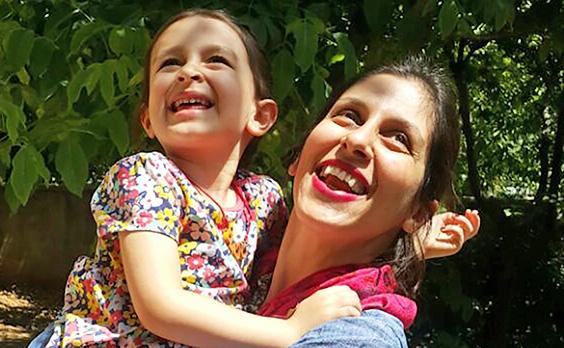As Nazanin Zaghari-Ratcliffe's MP, I was not surprised she collapsed in prison after the torture she's endured
I think it is high time that the UK considered a bolder approach in bringing Nazanin home by offering her diplomatic protection, showing Britain will not tolerate such unfair detention of its citizens


Two and a half years ago, Nazanin Zaghari-Ratcliffe was arrested at Khomeini Airport in Tehran following a routine visit to see her parents. Cruelly separated from her life in West Hampstead, she has gone through hell ever since.
Following the latest deterioration of her physical condition, I find myself compelled to speak out against the impossible conditions she faces and the cruelty of those jailing her. At the beginning of her imprisonment, Nazanin was subject to intense questioning and long periods of solitary confinement. There has never been a shred of evidence that Nazanin was in Iran for nefarious purposes, but the authorities continue to treat her as an enemy of the state. They have consistently failed to support their charges, instead choosing to channel spurious and incoherent accusations through the medium of Iranian state television. They have shown scant disregard for their humanitarian obligations every step of the way.
In private conversations with Nazanin, the authorities have been actively duplicitous. On some weeks they signal that she will be eligible for parole, as has long been her right in Iranian law. On other weeks, they recant on their promises, condemning my constituent to further imprisonment and insecurity.
The events of the past week best epitomise their duplicity and shed a clear light on the toll that it takes on Nazanin’s health. In the space of just a few days, the family have experienced the joys of Nazanin’s temporary release, before being confronted with the devastation of renewed separation. Barely had they processed the beautiful pictures of Nazanin’s reunion with her four-year-old daughter Gabriella before taking stock of the fact she has returned to prison.
As her MP, I find the decision not to extend the temporary release to be unforgivable. In my conversations with her husband Richard, he mentioned that fellow prisoners – condemned to much longer sentences than Nazanin – had received extensions, but yet she had not. This pattern of arbitrary enforcement is not new in Nazanin’s case, nor new to that faced by other British citizens detained in Iran. However it had a dramatic impact on her physical wellbeing, prompting successive panic attacks and her hospitalisation.
I hope that these developments will jolt the conscience of those who continue to detain her, but I fear it will do no such thing. While the new foreign secretary Jeremy Hunt has been far more proactive than his predecessor in demanding clarity from the Iranian authorities, in his own words, his conversations with Iran’s foreign minister Javad Zarif “clearly weren’t enough” to change Nazanin’s reality.
Given this current impasse, I think it is high time that the UK considered a bolder approach in bringing Nazanin home. Though each case is extremely sensitive and ultimately dependent on individual circumstances, Britain should not be tolerating any idea that we will accept the arbitrary detention of British citizens abroad.
In that vein, I continue to ask that the government offers Nazanin diplomatic protection. This would mean that any harm caused to Nazanin would be taken as harm to the British state. It would escalate the dispute to a higher status, and would encourage greater accountability from the Iranian authorities. It would hopefully force a swifter conclusion to this shocking case.
As a member of parliament, I am used to taking on difficult casework. At my advice surgeries, many constituents tell me of their extreme stress, often a result of immigration difficulties or cuts to welfare support. I therefore do not take this lightly when I say that I have experienced no case in which a constituent has been treated so disgracefully.
Human rights organisations, led by the charities Redress UK and Amnesty International, have said that Nazanin’s detention amounts to mental and physical torture. Following the events of the past week, who could possibly disagree?


Join our commenting forum
Join thought-provoking conversations, follow other Independent readers and see their replies
Comments